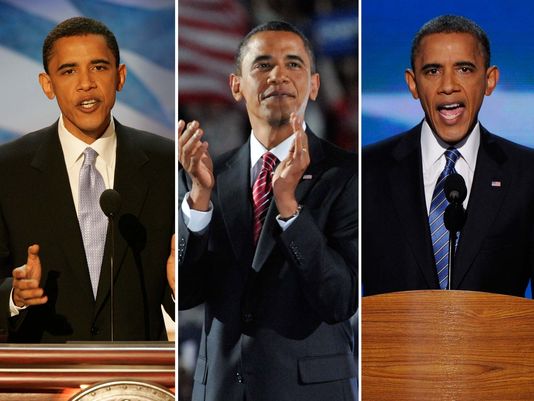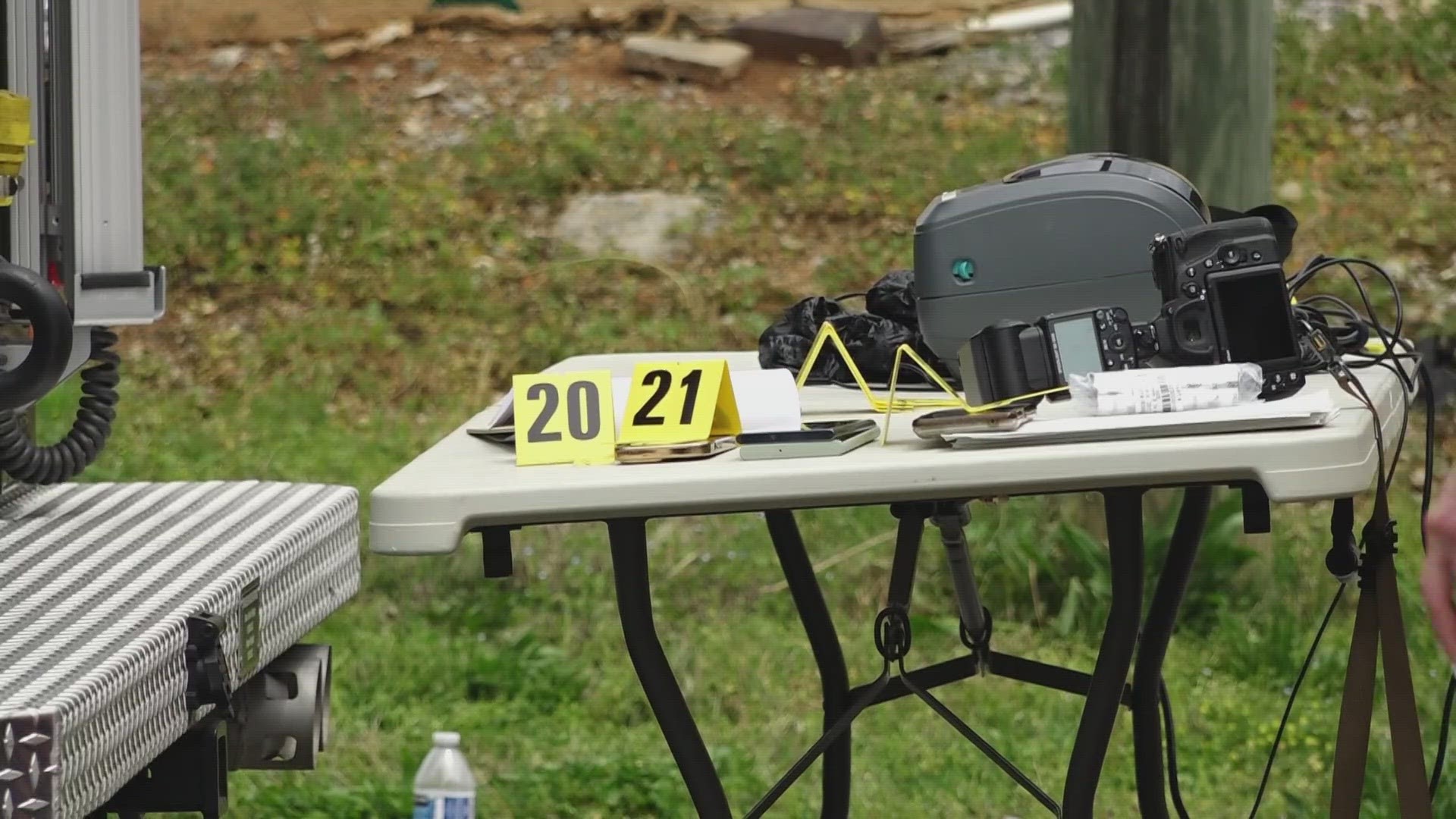PHILADELPHIA — President Obama will take the stage at the Democratic National Convention for the fourth time Wednesday to make an argument that only one president has made successfully in modern times: that his policies deserve a third term in the form of Democratic nominee Hillary Clinton.
The speech is as important for Obama's place in history as it is for Clinton's future. And it will require Obama to juggle a variety of rhetorical chores: defending his own legacy, unifying the Democratic Party and promoting his once bitter rival for the presidency.
White House aides say Obama has been working on the speech for several weeks and cleared much of his calendar this week to finish it.
As much as anyone, Obama has proven the impact that a single convention speech can have. After all, he catapulted his own trajectory to the White House with by a keynote address to the 2004 Democratic National Convention in Boston.
"There's not a liberal America and a conservative America; there's the United States of America," he said then. "There's not a black America and white America and Latino America and Asian America; there's the United States of America."
That speech came 12 years ago Wednesday — a historical coincidence that Obama is sure to note.
"I think it's a good bet that he'll reflect on that," White House Deputy Press Secretary Eric Schultz said Tuesday. "I think the president will talk about what the country has accomplished together since then, what the grit, ingenuity and determination of the American people helped to achieve over the past eight years."
Ronald Reagan's address to the 1988 Republican National Convention sounded similar themes as Reagan campaigned for his vice president — the only sitting president since Calvin Coolidge to usher in a successor of his own party.
"Without George Bush to build on those policies, everything we've achieved will be at risk. All the work, sacrifice, and effort of the American people could end in the very same disaster that we inherited in 1981," Reagan said.
In Obama, Clinton has an enthusiastic campaigner who appears highly motivated to get her elected — both to vindicate his own policies and to repudiate her opponent, Donald Trump.
But that simple task often poses pitfalls for presidential speechwriters.
"They each face the same problem, which is that the presidents themselves want to defend their records, and for perhaps egotistical reasons," said John Murphy, who studies the history of presidential speeches at the University of Illinois.
But in doing so, presidents can't cast such a big shadow that it's difficult for their would-be successor to come out from under it.
"They also have to give the candidate room to breathe. You can't overwhelm the candidate so she doesn’t seem like her own person," Murphy said. "Being subordinate, especially for presidents, is hard, hard, hard."
So Obama needs to make his speech about Clinton. But that, too, has perils.
"One of the dangers — and we might see Obama fall into this — is that in the course of trying to identify specific things the candidate did, it ends up being small," Murphy said. After all, vice presidents and Cabinet secretaries usually just carry out the wishes of the boss.
Reagan, for example, touted his vice president's mission to Brussels to get NATO allies to agree to base intermediate-range nuclear missiles. Clinton credited Al Gore with casting tie-breaking votes for his agenda in the Senate. George W. Bush — in a speech he literally phoned in by satellite so he could respond to a hurricane — thanked John McCain for supporting his "surge" strategy in Iraq.
All were at least more helpful than Dwight Eisenhower, who didn't even mention his Nixon in his 4,500-word address to the Republican National Convention in Chicago in 1960. (Even more damning: A month later, when asked about what ideas Nixon brought to the his administration, Eisenhower quipped, "If you give me a week, I might think of one.")
Obama also arrives Wednesday at a convention still reeling from disclosures from leaked Democratic National Committee e-mails showing some staffers actively conspired against Clinton's democratic socialist rival, Sen. Bernie Sanders. That led to the resignation of Obama's hand-picked DNC chairwoman, Debbie Wasserman Schultz, on Sunday — and to raucous chants of "Bernie! Bernie!" from so-called "Bernie or Bust" delegates.
"Certainly that's part of the job of what Hillary Clinton would like Obama to do at the convention, to heal that schism and put the party back together again," said Herbert Weisberg, a political science professor at Ohio State University.
And with approval ratings among Democrats above 90%, Obama may be uniquely qualified to do that. "Young people who were so strongly in favor of Obama eight years ago and four years ago, the issues that are most important to them, they’re even more afraid of Trump turning back the clock on those issues," he said.
Convention speakers also usually play the role of attack dog, but the White House has suggested that won't be Obama's primary goal.
Although he hasn't been shy in rebutting Trump's views on a Mexican wall, Muslim refugees or the role of NATO, Schultz said Wednesday's speech "will much more focus on how Secretary Clinton has the judgment, the toughness, and the intellect to succeed him in the Oval Office."


